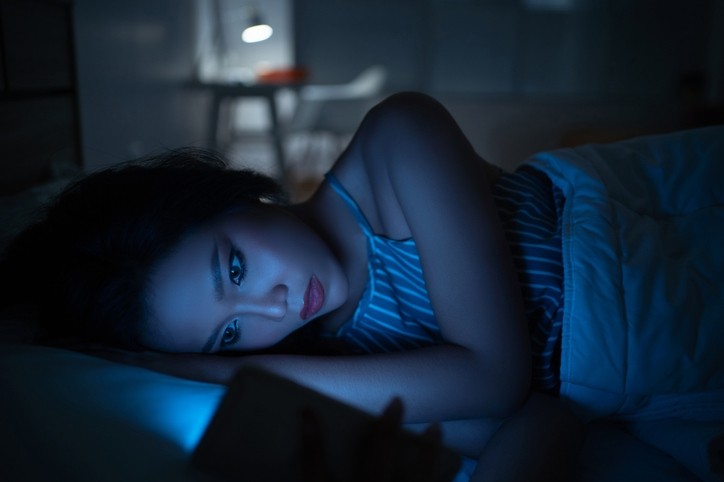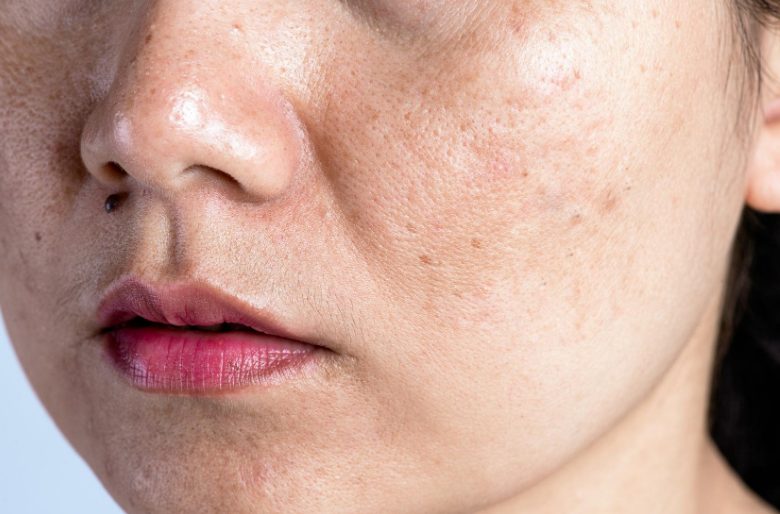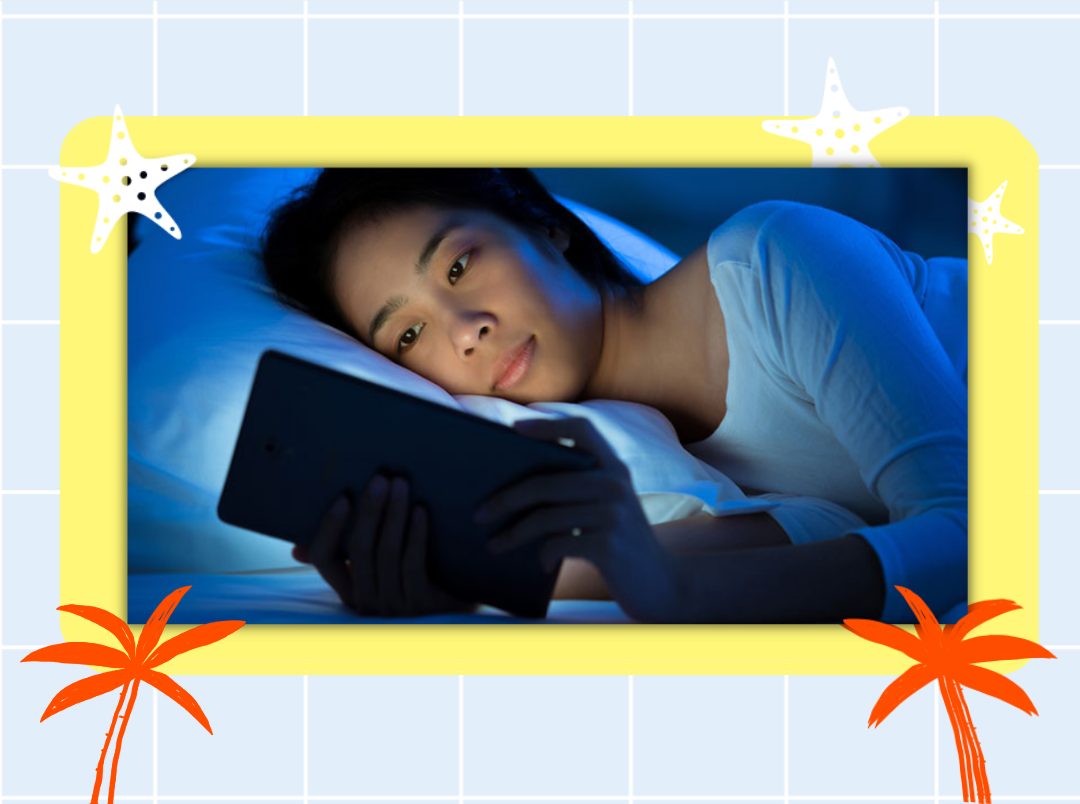Blue light has permeated every aspect of our lives, whether you’re always connected or would like to unplug from all of your devices. You spend a significant portion of your day in front of screens, whether working on your laptop, using social media, or reading this article. Blue light is said to affect your eyes and sleep cycle, but you may not have thought about how it may affect your skin. In this article, we examine blue light through the lens of skincare and distinguish the difference between blue light damage and sun damage. Let’s see what’s worse.
What’s Blue Light Exposure?

When we were little, do you remember how we adopted the acronym VIBGYOR to recall the colours of the rainbow? B thus stands for blue light in this instance (about 380-500nm). That basically means that blue light is present in every speck of daylight that hits your skin. There is no guarantee that it ends there. According to research, your devices, like smartphones, computers, and television screens, also emit blue light. The frequent exposure of your skin to blue light causes the creation of free radicals, which leads to a chain reaction of inflammatory events. It eventually causes the breakdown of collagen and elastin, disturbance of melanin, destruction of the epidermal barrier, and dehydration. Additionally, it reduces melatonin production, which controls your body’s circadian cycle.
Can We Really Prevent Blue Light Damage?
“Digital ageing” has become a major worry in the current digital era, and the younger generation is more at risk in this regard. Can we entirely prevent harm from it? The goal is to find a balance between on and off time while experts are still gathering more reliable data to support the alarming claims of skin damage caused by blue light from screen time. When compared to blue light from the sun and visible light, our devices’ blue light is less potent and harmful. This includes mobile phones, televisions, and computers. So here are some suggestions for preventing the cumulative harm.
- Don’t use dim red lights when you sleep. Red light has a lower propensity to inhibit melatonin and impair sleep.
- Wear a sunscreen with a blue light filter while using your laptop, mobile device, and television. Use the right sunscreen both indoors and outdoors.
- Your gadget will emit less blue light when you use it in safe mode. As an alternative, various apps that use blue light screen filters can be downloaded.
- Wear glasses that block blue light. They don’t cost a lot of money.
And What’s Sun Damage?

How does skin that has been damaged by the sun look? Your skin will become sun damaged if you expose it to the sun (directly or indirectly). And if you think that staying indoors is the best method to prevent sun damage, you’re mistaken.
The first sign of solar damage is a suntan. Tanning, sunburns, redness, rashes, dryness, and parched skin are some of the immediate signs of UV exposure. UV radiation exposure results in photoaging, which results in wrinkles and fine lines because of a lack of skin elasticity, as well as freckles, pigmentation, lentigo, and freckles. If you are prone to sunburn, you should start using sunscreen straight away.
Let’s Sum It Up: Sun Damage Is Not Even Close to How Harmful Blue Light Damage Is
It has long been recognised that ultraviolet (UV) rays cause our skin to age prematurely. Blue light, on the other hand, destroys collagen through oxidative stress whereas UV radiation directly damages the DNA of cells. Moreover, some scientific research suggests that blue light causes significantly more harm than UV rays. A brief, peer-reviewed study found that exposure to blue light increases pigmentation, redness, and inflammation more than UVA exposure at comparable levels. The study was published in the Journal of Investigative Dermatology (2010).
So remember, SPF is your only BFF to protect you from both!
Featured Image: Instagram






.png)


